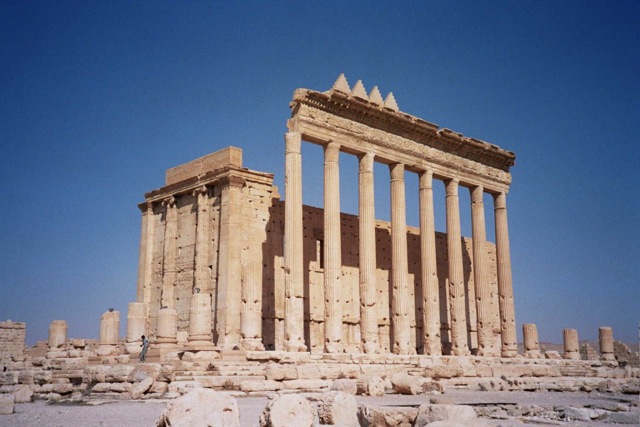PALMYRA ARCHAEOLOGIST KILLED BY ISIS MILITANTS
News from: Bible History Daily, August 22, 2015
ISIS Executes Antiquities Scholar in Syrian City of Palmyra
Islamic State militants have executed antiquities scholar Khaled al-Asaad in Palmyra, Syria. Asaad, who was 81 years old, was the head of antiquities in Palmyra for 40 years until his retirement in 2003.
Syrian official reports death of scholar Khaled al-Asaad
Robin Ngo • 08/19/2015
khaled-al-asaad
Khaled al-Asaad was head of antiquities in Palmyra for 40 years until his retirement in 2003. Photo: Marc Deville/Gamma-Rapho via Getty Images.
Militants of the Islamic State (known as ISIS, ISIL or Daesh) have executed antiquities scholar Khaled al-Asaad in the Syrian city of Palmyra, reports Maamoun Abdulkarim, the Director of the Directorate General of Antiquities and Museums in Syria.
Asaad, who was 81 years old at the time of his death, was the head of antiquities in Palmyra for 40 years until his retirement in 2003. He had taken part in archaeological projects in Palmyra and was the author of more than 20 books on Palmyra and the Silk Road, the BBC reports.
ISIS militants reportedly held Asaad for over a month, interrogating him about the location of valuable antiquities. Last spring, hundreds of statues were said to have been moved to a secure location as Palmyra was coming under siege.
haliphat-palmyra
Third-century C.E. funerary bust of a woman from Palmyra named Haliphat, now on view at the Smithsonian’s Arthur M. Sackler Gallery in Washington, D.C. Photo: Robin Ngo.
“They killed him because he would not betray his deep commitment to Palmyra,” UNESCO Director-General Irina Bokova said in a statement.
The extremist group had captured the Syrian city of Palmyra in May, laid explosives around the 2,000-year-old ruins and blew up two nearby Muslim shrines.
In antiquity, the palm tree-lined oasis of Palmyra had been an important trading center along the Silk Road, connecting the Persian Gulf to the Mediterranean Sea. Monumental ruins at this UNESCO World Heritage site attest to the prosperity Palmyra enjoyed in the Roman period.
“The continued presence of these criminals in this city is a curse and bad omen on [Palmyra] and every column and every archaeological piece in it,” Syrian antiquities chief Maamoun Abdulkarim said to Reuters.
Over the last year, ISIS has looted and destroyed a number of important archaeological sites in Syria and Iraq, including Aleppo, Nineveh and Nimrud.

